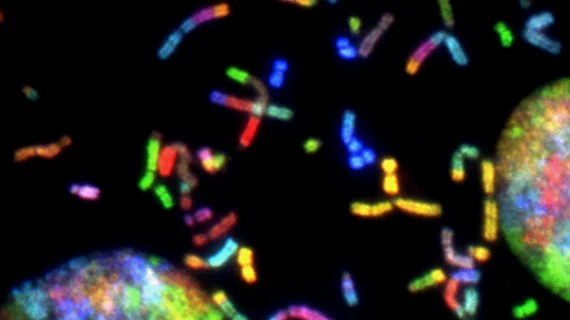Could AI help produce a unifying concept of human disease—one that might help prevent, mitigate or cure everything from birth defects and rare cancers to immune disorders and neurological defects?
Almost certainly not in our lifetimes, argues a distinguished biologist who’s been unraveling cancer genetics and pursuing related avenues of inquiry since the early 1960s.
In 2021 the matter on his mind is AI in service of precision medicine.
“The existence of inherited mutations of various connexin genes [aka ‘gap-junction proteins’] has been associated with specific human disease syndromes as well as with knockout [protein-subtracted] mice models,” writes James Trosko, PhD, in commentary published this month in Diseases.
This association, considered together with “mounting evidence linking specific epigenetic chemicals with all kinds of human diseases, has to be acknowledged as a critical cellular effect in predicting human diseases,” adds Trosko, a professor emeritus of pediatrics and human development at Michigan State University.
After all, vastly complex mechanisms surely underlie gene expressions seen in connexin genes within each unique cell type.
He makes this assertion based on research showing that each connexin protein is separately regulated at the transcription, translation and post-translational level.
“This makes, especially with our knowledge at this time, our task to integrate all these complex interacting factors extremely difficult, if not impossible,” he writes.
And that goes for researchers looking to AI for help untangling the intricacies of these subcellular interactions as they pursue ever more precise personalized medicine:
This new field Artificial Intelligence, as a major handmaiden to Precision Medicine, is significantly altering the fundamental means of biological discovery. However, can today’s fundamental premise of ‘Artificial Intelligence,’ based on identifying DNA, as the primary nexus of human health and disease, provide the practical solutions to complex human diseases that involve the interaction of those genes with the broad spectrum of ‘environmental factors?’ Will it be ‘precise’ enough to provide practical solutions for prevention and treatments of diseases?”
Drawing examples from one of his research specialties, carcinogenesis, Trosko makes the case that any AI-based attempt to build a unifying concept of human disease—or at least any that fails to simultaneously test hypotheses of mechanistic causes and effects—“will fall short.”
The paper is available in full for free.

